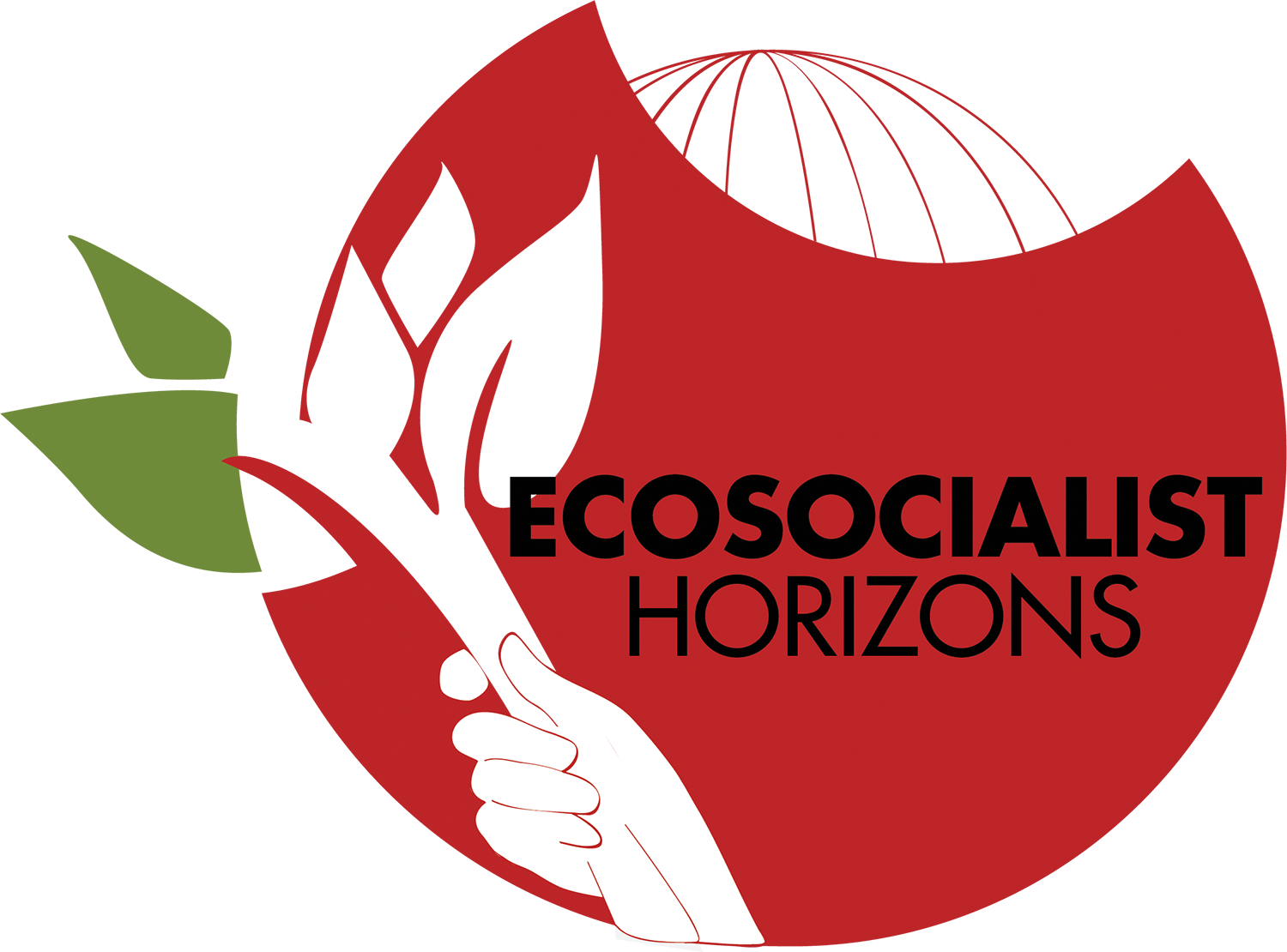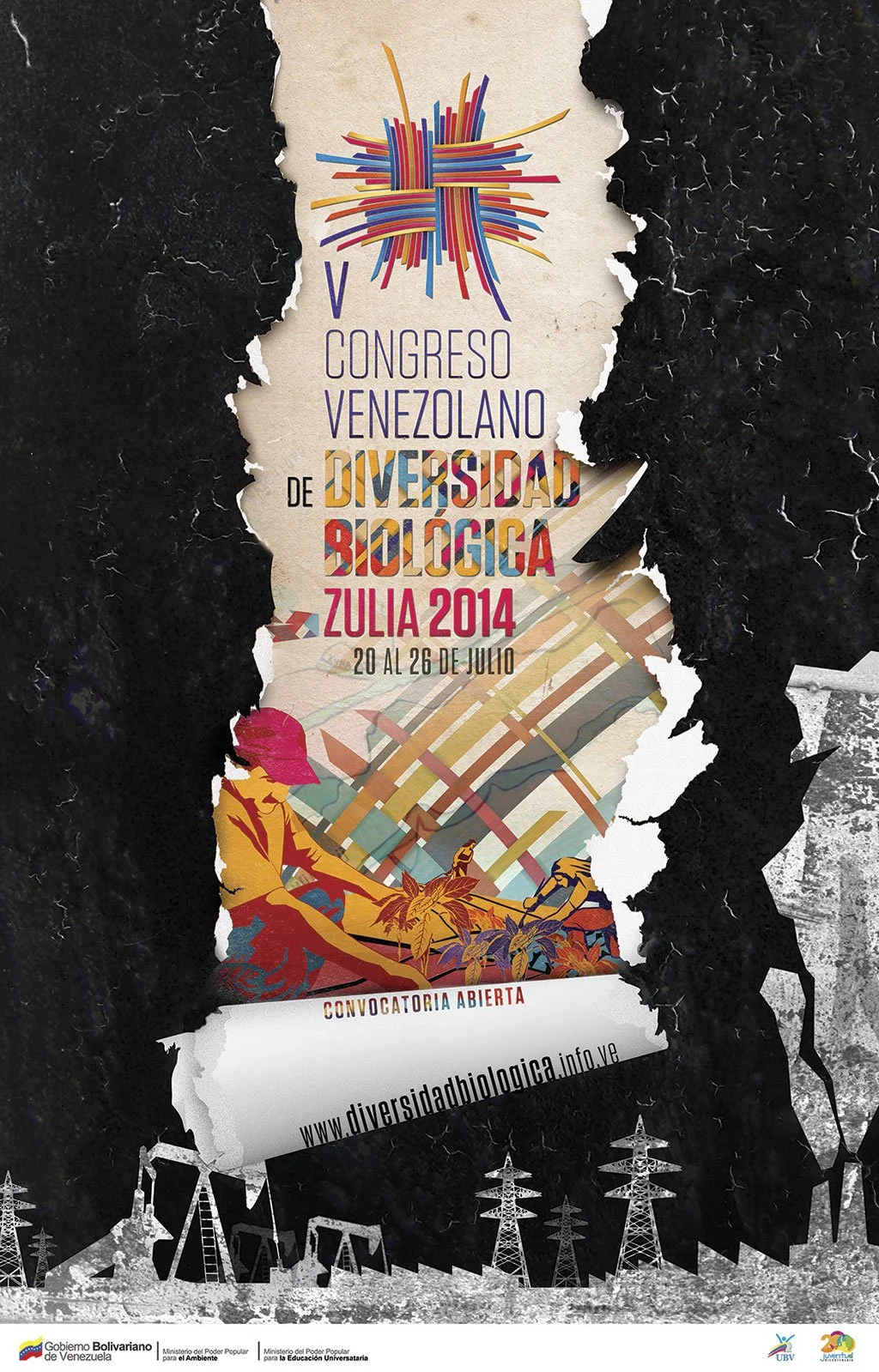Declaration of the Fifth Congress of Biological Diversity
Maracaibo, July 21-26, 2014, Bolivarian University of Venezuela
Translated and with footnotes by Quincy Saul, with Javier Sethness-Castro, Ecosocialist Horizons.
In defense of life, we are reunited at the Fifth Venezuelan Congress of Biological Diversity, in the Bolivarian University of Venezuela, in the city of Maracibo, in the state of Zulia, from July 21-26. We debate the territorial dimension of our struggle, as a continuation of the experiences from the Fourth Congress, in which we put forward the work of “illustrating our ecosocialism,” – its economics, its politics, its ethics, its social fabric, its culture and its vision of land and territory. In this Fifth Congress, we have the opportunity to deepen the contents of this illustration, with experiences reunited during five days of debates, exchanges of knowledge, and socioproductive, cultural, formative and informative practices.
In this context, understanding the diversity of actors and struggles, we addressed the different visions of land and territory present in the heterogeneity of our social fabric. We discussed the problems and the historic threats of latifundista (1) and colonial land grabs, and the deterritorialization generated by the Western capitalist model, which expropriates and destroys material and symbolic spaces for the commodification of the earth. Moreover, we debated the historic role of diverse forms of emancipatory struggles for life and Mother Earth.
Our ecosocialism is built on the lands and territories of indigenous peoples, campesinos, and Afro-descendants – urban, coastal and communal – where peoples make their lives, where they construct and defend the sovereignty of their peoples, of the nation and of Nuestramerica (2). Conscious of the commitment that our historical moment demands, and with the firm will to consolidate our ecosocialism, advancing in the construction of Popular Power, Communal Power and the Communal State, from the many perspectives of sociocultural and biological diversity,
We believe:
That throughout colonialism and the Republic, indigenous peoples and Afro-descendants were displaced and dispossessed from their ancestral lands, and even with the great efforts of the Bolivarian Revolution, we continue to carry the better part of this historic debt.
That capitalism in its transnational phase – given the hegemony of its mercantile logic – requires the private property of all land in order to monopolize the production of commodities, to push the growth of its markets, and to exercise domination, thus generating the dispossession and poverty of the peoples who inhabit this land.
That historically, the plunder, robbery, displacement, dispossession and deterritorializations, as foundations of the dominant colonial, patriarchal and neoliberal paradigm (with the resulting unequal distribution of demographics, such as the creation and proliferation of latifundios and overpopulated cities) has been a strategy of a transnational speculative financial economic power, sustained in the technocratic extractivist terrofagica (3) – to generate poverty, and make vulnerable the independence and the sovereignty of peoples. That the colonization and exploitation of peoples and lands has led to the extermination of those peoples, of their local knowledges and cosmogonies, and thus to the reduction, domination, and extinction of social, cultural and biological diversity.
That in Nuestramerica we have been developing struggles and historical anti-hegemonic arguments for the construction of ecosocialism, from the profound roots of harmonious relations with Mother Earth, capable of transcending the historical forms of exploitation, colonization, and racism generated by capitalism and patriarchy.
That the struggles for the construction of our ecosocialism must confront the challenge of debating and resolving the tension in the prevailing productive economic model, which is based in plans for mineral extraction and territorial development, made visible in the contradiction between the third and the fifth historic objectives in the Plan de la Patria (4), in which industrial developmentalism is in counterpoint to the defense of life on earth.
That the Constitution of the Bolivarian Republic of Venezuela, along with the rest of its laws, contains structural elements of the recognition of the rights of indigenous peoples, guaranteeing the legal basis for the construction of the conditions which will permit the full flowering and development of their existence for self-government and for the self-demarcation of their lands and territories.
That our lands and territories, and their constitutive elements, form a primary component of the security and defense of social, cultural, linguistic and biological diversity against the threats of foreign interests and their internal allies.
We declare:
That we are in solidarity with the diverse struggles of campesinos, Afro-descendants, indigenous peoples, urban, coastal and dispossessed peoples; for the right to land, as a guarantee of the preservation of life and against the predatory practices of the capitalist system; and that it is the duty of everyone to continue a national debate on these questions, and to propose actions for the defense of these peoples.
That for us the land is a symbolic, spiritual and material place where we construct our identities, our collective historical memories, our affective, relational, political and economic affinities, our beliefs and knowledges, from the roots and from our concrete and contextual experiences. We recognize land, beyond soil and habitat – where cultures have left their footprints – as a fundamental collective right, which permits the existence and historical continuity of peoples, their cosmovisions and their own modes of life.
That we recognize the lands of campesinos, indigenous peoples, Afro-descendants, coastal, and urban peoples, and their practices associated with the care and empowerment of life forces, as structural bases for our food sovereignty.
That social diversity – like linguistic, cultural, spiritual, and physical diversity – is a structuring factor of land and its biological diversity. The recognition of the interdependence between biological diversity and social diversity will lead us to deepen our visions of a counter-hegemonic world, and the decolonization of our histories and identities.
That in our ecosocialism, the exercise of territorial sovereignty and the defense of life must base itself in national sovereignty and in international relations which do not violate, and are assumed as part of, the diversity of cultures, knowledges, forms of struggle, resistances, and perseverance in the care for life; a popular sovereignty which recognizes and doesn’t contradict our national sovereignty.
That understanding and knowledge are communal territories and common goods which we generate from our emancipatory practices. Understanding is the land on which we exchange knowledges, on which we can continue deepening the creation of free and liberatory training programs, territorialized and contextualized, for the accreditation and communal recognition of experiences and knowledges.
That it is the duty of everyone to strengthen our experiences of communication. These should transcend the media and established institutions, and should give us the challenge of deepening the creation of communal symbolic presentations, representations and self-representations of land, for the valorization of the diversity of cosmovisions among all peoples.
That the perverse role of industrial agriculture, together with its associated technological packages, including genetically modified seeds, is one factor that is responsible for the processes of deterritorialization – for the loss of cultures and identities, the loss of campesino, indigenous, and Afro-descendant technologies, and the privatization and exploitation of our genetic and ecological patrimonies – and thus for the weakening of our independence, along with our agricultural, political, sociocultural and food sovereignty.
That the commune – and other forms of conviviality and community gathering – are the terrain and the territory of ecosocialism; with their distinct magic-religious meanings, their realities, their limitations, their needs, their complexities, their richness, opportunities, and specific possibilities, where they are strengthening a political model for the management and care of life. The commune is the maximum expression of solidarity in the collective appropriation and construction of the land – material spaces and territorialities, and the construction of systems of economic, political and sociocultural relations which occur on the land – wherein the structures which sustain egoism will tend to disappear.
That the socioproductive and socially diverse model of the commune constitutes the territory for the identification and recuperation of our historically displaced biological diversity, along with its associated knowledges; through collective and community labor, for the strengthening of an ecosocialist, conuqera (5), self-managed and interdependent economy. This is understood from the perspective of an equilibrium between the socialist model of industrial production and local processes of production.
That the laws of Popular Power are the fundamental base for the consolidation of our communal territory, and constitute the legal basis for the construction of public policies oriented toward the communal appropriation of land.
That the ways in which the elements of nature are used, oriented towards the construction of our ecosocialism, must be in consonance with respect for the rights of Mother Earth, the cultures which she shelters, and human happiness, as alternatives to capitalist development.
That the ethics of ecosocialism is the care for life: the recognition and the incorporation of functional, cognitive, and cerebral diversities; the diversity of genders, sexes, sexualities and forms of family organization. The recognition of grandparents, maestros pueblos (6), guardians of ancestral and maroon knowledges – medicinal, nutritional, and psychosocial – for gestation, childbirth, breastfeeding, childrearing, the unity of caregiving and life in common; through methods of teaching and apprenticeship developed by the people, to avoid colonial representations and the displacement of cosmogonies and local knowledges.
That throughout the struggle for the reappropriation of our lands of life – campesino, indigenous and Afro-descendant, urban and coastal – we are being persecuted and assassinated by powers which survive against the interests of the people, which resist returning lands to the people which are being plundered for the production of capital.
That the defense of life moves also towards the search and demand for climate justice, recognizing that the capitalist mode of relating to land and territory is the primary cause of climate change, which is an expression of the global environmental crisis generated by the hegemonic countries of the global North. The consequences of this phenomenon – its effects on ecosystems, on drinking water, sea levels, and seasonal weather patterns, among others – will primarily impact the most vulnerable peoples, affecting their productive processes, causing displacement, poverty, and loss of cultures and forms of life.
That is is our duty to counteract the commodification of the animal life which inhabits our lands and territories, threatened as it is by the capitalist system which insists on its logic of the domination of nature.
That all this requires, among other things, the study and the review of the extraction and exploitation of the Orinoco Belt and the strategic minerals in the states of Amazonas and Bolivar, as well as that of other proposed projects. We recommend that the coal mining concessions in the Sierra de Perija in the state of Zulia be suspended, as they represent a threat to lands full of biological diversity, freshwater springs, and indigenous cosmovisions.
In this sense, we remain in struggle, resisting and insisting on the defense of our lands and our territories, together with our indigenous, campesino, Afro-descendant, urban, and coastal brothers and sisters, as part of the same path which will take us, through debate and the construction of common agendas, to collectively defend Mother Earth for the construction of new territorialities which arise from our own collective identities.
Maracaibo, July 25, 2014
Footnotes:
(1) A form of property ownership of large amounts of land characteristic to Spanish colonialism. See Latifundium.
(2) Cuban revolutionary José Martí prophesied a revolutionary awakening of the Western hemisphere which he called Nuestramerica; “Our America”. See his famous essay by this title.
(3) “Terrofagica is a compound word, not one common to Spanish. It means that which devours and swallows the earth” – Violeta Gomez, general coordinator of the Congress of Biological Diversity
(4) The Plan of the Nation, 2013-2019: Read the full text in English online here.
(5) A Venezuelan idiomatic adjective referring to the qualities of small family farmers who carry on indigenous and ancestral traditions of agriculture, economics, and culture.
(6) Teachers of the people – elders and master craftsmen; keepers of scientific, technical, social and cultural knowledge.


